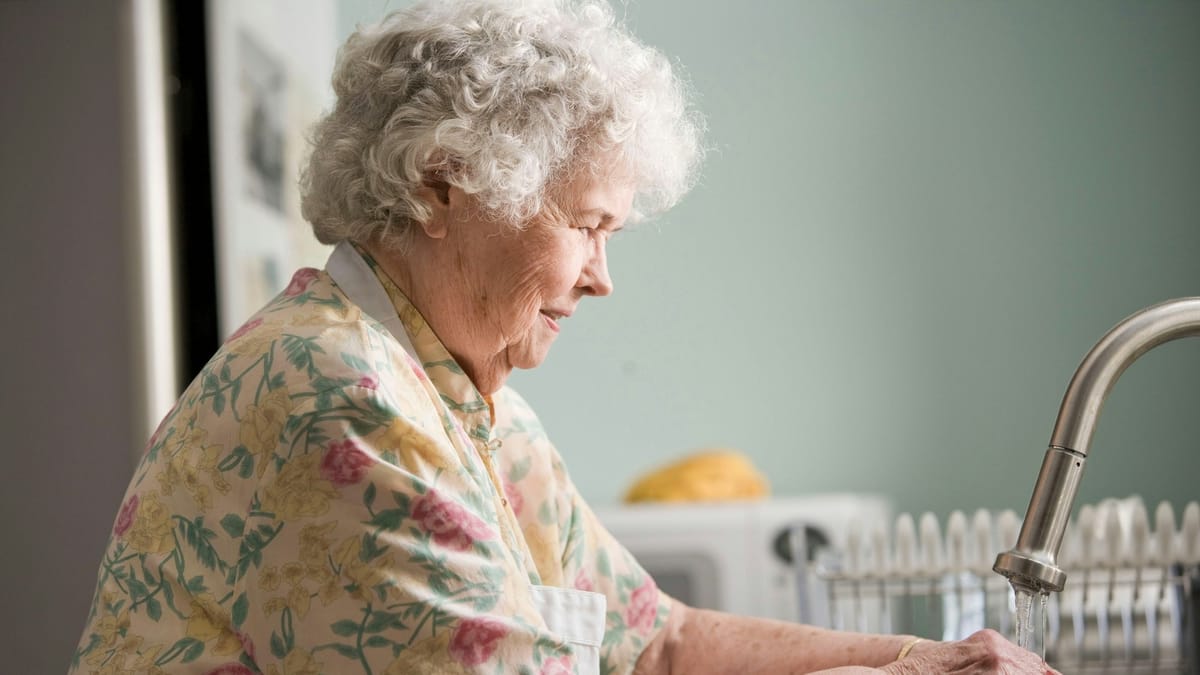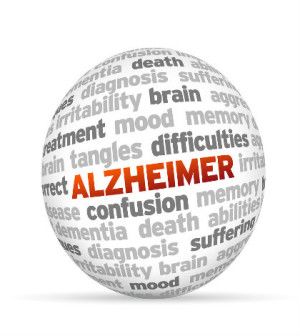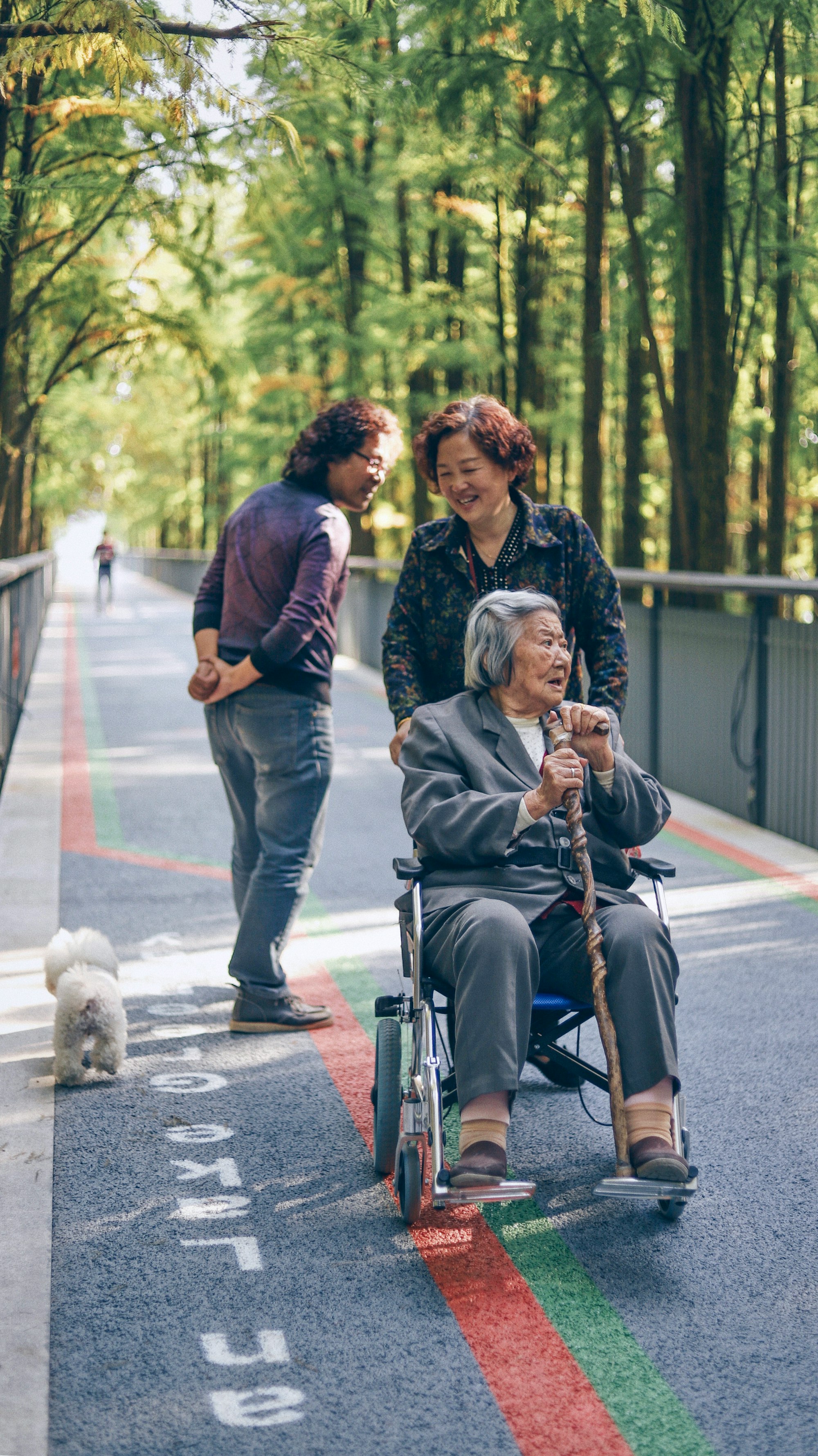Determining When It's Time for Memory Care
Placing a loved one in memory care can be a difficult decision, but it can also provide specialized care and support for those with cognitive decline or physical impairments. Learn about the benefits of memory care and how it can improve the well-being of your aging family member.

Why Should I Even Consider Memory Care?
One of the most difficult times for multigenerational family is when… the safety and health of aging parent become questionable. And the topic of placing them into a care facility needs to be considered. When Alzheimer’s rears its ugly head, then the debate moves from should we do this, to when will we do this?
The reason is… this is a disease that is relentless, progressive, and completely unforgiving. Alzheimer’s affects the brain and the brain controls literally everything:
- Ability to walk
- Bowel and bladder control
- Speech and speech recognition
- Memory of course
- Emotions
- Impulse control
- Ability to reason
This illness slowly impairs all of these functions.
Providing care for this person requires the combined effort of several family members. Unfortunately the responsibility frequently falls on the shoulders of a single person.
A loved one, like you, can commit to providing… for a person with this illness, and there is no doubt that you can do a good job of it for a while. But this disease will push through your limits eventually. I have met very few people that were able to sustain that care for the entire course of the illness. They seriously damaging their own health through exhaustion and stress.
Often I meet family caregivers that put off the decision to turn care over to professionals. Sadly it is only after a serious incident or close call. The risk of postponement is not only to the caregiver’s health, but also to the person that needs care. Caregivers are very self-sacrificing. But may not realize that their loved one is at greater risk in the middle and late stages of the illness. And care requires greater and greater knowledge and skill.
Signs It's Time for Memory Care: Recognizing the Need for Specialized Support
As Alzheimer's disease or dementia progresses, individuals may reach a point where their care needs surpass what can be provided at home. It becomes crucial to ensure 24-hour supervision for their safety. In some cases, specialized memory care facilities are the best option.
With over 6 million Americans affected by Alzheimer's, it's important to understand the different levels of care available. Assisted living facilities offer support but lack full-time medical care, while nursing homes focus on medical care but may not specialize in dementia care.
Memory care units, on the other hand, provide a specialized approach to dementia care. Residents benefit from the expertise of healthcare professionals trained to address memory loss. These residential facilities prioritize the unique needs of individuals with dementia.
So, how can you determine if memory care is necessary? Look out for these warning signs:
Changes in behavior that impede daily functioning.
Confusion and disorientation that endanger physical safety.
Decline in physical health and appearance.
Deterioration or loss of a primary caregiver.
Incontinence issues.
Difficulty with electronic and phone communications.
If someone with dementia displays these signs, it's crucial to explore memory care options. Consult with a medical professional to determine the appropriate level of care needed.
Remember, when safety is at stake, it's time to consider memory care. Don't hesitate to prioritize the well-being of your loved one.
Are you caring for a loved one with dementia? Here are some signs that it may be time to consider memory care:
When the caregiver's health deteriorates or they pass away, the person being cared for may require a higher level of attention, such as memory care.
Incontinence issues can become severe and lead to serious infections, which can be prevented with the higher level of care provided in memory care units.
Confusing and nonsensical communication, such as texts, emails, and voicemails, could be a sign that it's time for memory care.
If you're considering memory care for a loved one, ask yourself these questions:
Is their current living environment safe for them?
Is their behavior potentially harmful to others?
What are their wants, needs, and thoughts about their situation?
What do medical professionals and other family members suggest?
Are there resources and support systems to help them age in place, or is a move necessary to provide proper care and protection?
If you're unsure, seek a diagnosis from a primary care doctor, geriatrician, geriatric psychiatrist, or neurologist.
Explore Your Memory Care Options: Assisted Living, Dedicated Communities, and Skilled Nursing Homes
When it comes to memory care, there are several options for you to consider. Whether you're looking for support while living in a nursing home or prefer a specialized environment, we have the solutions for you.
Assisted living facilities offer memory care units where trained staff members can provide additional support for those facing challenges with day-to-day living. If you're in the early stages of dementia, a continuing care retirement community may be the right fit, offering both assisted living and a memory care unit as the disease progresses.
For comprehensive care in a secure environment, a dedicated memory care community is an excellent choice. These specialized assisted living units ensure the safety of residents while providing assistance with daily tasks and engaging activities to enhance their quality of life. Caregiver Relief has created a checklist of things to look for when you are considering memory care.
If you require more intensive care, a secure memory care unit within a skilled nursing home is a viable option. Here, you'll receive the necessary support for personal care tasks, and have the opportunity to interact with others facing similar challenges.
Don't navigate memory care decisions alone. Explore these options to find the best fit for you or your loved one's needs.
Enhance Your Loved One's Care at a Secure Memory Care Unit in a Skilled Nursing Facility
When it comes to providing the best care for your loved one, a secure memory care unit in a skilled nursing facility is the ideal choice. Not only will they receive the assistance they need with daily activities and personal care, but they will also have the opportunity to socialize with others their age.
In skilled care they prioritize the medical needs of those with chronic or complex illnesses. Rest assured that your loved one will receive the highest level of care and attention in a comfortable and secure environment.
Don't compromise on the care your loved one deserves. Choose a secure memory care unit in a skilled nursing facility for peace of mind and enhanced quality of life. Contact us today to learn more.
The benefits of a Memory Care Unit
The first argument for long-term care is that facilities are experienced at providing very specific care … and stimulation that will slow cognitive decline. And, as importantly, slow physical decline.
Research on dementia indicates social interaction and stimulation you would receive in a communal environment have a marked affect on … preserving memory, social and verbal skills.
For example, facilities have Activities Directors who design calendars… that to the average person seem simplistic and purposeless. But the opposite is true. Each activity has a therapeutic quality.
Games like… balloon volleyball and parachute toss use large muscle groups that maintain hand-eye coordination. They prevent , muscle wasting and help seniors to maintain better balance. As well as promotes fall prevention. Using these larger muscle groups even help bladder and bowel continence.
Activities that involve manipulating objects with the hands, like working with color matching blocks, or Legos… help fine motor movement, depth perception and reduce joint and arthritis related pain.

The second reason is… as the illness progresses, your parent/daughter (son) relationship becomes lost. You slowly stop being the concerned child who is… helping your parent through a difficult time. And become a full-time caregiver instead.
Almost every interaction you have is providing care:
- Making meals
- Changing clothes,
- Giving showers
- Cleaning up “accidents”
- Re-directing the person away from dangerous or inappropriate behaviors
- Grooming…
You rarely have time to just sit and do the small things that defined your relationship. You in essence become the parent to your parent.
You may not realize that you have been doing the work of 5 or 6 people. No wonder you rarely had time to spend quality time with mom or dad.
In assisted living they have:
- Cooks to prepare meals
- Housekeepers to clean rooms,
- Vacuum
- Dust
- Change linen
- Do laundry
- Caregivers to help with showers
- Personal grooming, change diapers if necessary
- Medication technicians to prepare medications and giving them at the right times
- Maintenance staff to hang pictures, change light bulbs, clean carpets etc.
When your parent moves into a long-term care setting, like assisted living or board and care… the facility takes over all these caregiving that you used to do. And you are now able to re-discover your relationship with your parent.
You once again have time to… just visit or take them out to lunch. It’s a very liberating experience. And often a satisfying opportunity to spending quality time… in the last months and years of their life.
Our Resource section can help you find the information and tools that you need. We have courses, videos, checklists, guidebooks, cheat sheets, how-to guides and more.
You can get started by clicking on the link below. We know that taking care of a loved one is hard work, but with our help you can get the support that you need.
Click here to go to Resource Section now!
It is important that you see a different view of assisted living. Please take time to read this 4 series report.
You might also like this article:






